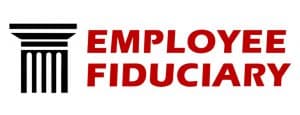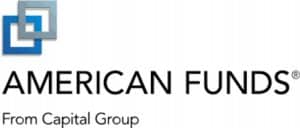A 401(k) is a type of retirement savings plan that employers offer their employees as a benefit. The plan allows eligible employees to contribute a certain portion of their paycheck through salary deferral before taxes, to a managed retirement plan. Some companies boost the benefit by matching all or a portion of the employee contributions.
401(k)s have many benefits: contributions to the plan are tax-deductible, meaning you don’t have to pay income taxes on them, and savings accrue automatically, requiring little effort or attention from the 401(k) holder.
Compared to the other principal types of retirement accounts, the main difference between an IRA and a 401(k) is that a 401(K) is always set up by an employer. However, simple IRAs are less like traditional IRAs and more similar to 401(k)s in that they are employer-sponsored and also receive employer contributions, though a 401(k) generally has a much higher contribution limit than a simple IRA.
In today’s competitive employment landscape, having a solid 401(k) plan can be a differentiator to help businesses attract and retain top talent to their company. Due to the popularity of 401(k)s, many businesses simply practice automatic enrollment wherein all employees are automatically enrolled in the company’s 401(k) plan unless they otherwise specify. While providing an easy avenue for employees to save and begin retirement planning is a benefit most companies would love to provide, a lot of small companies don’t offer 401(k) plans because they can be difficult to figure out, time-consuming to manage, and making matching contributions is expensive.
Luckily for small business owners, there is a wide selection of financial service firms that offer 401(k) plan types that are tailored specifically to small business owners who don’t have experience starting or running a retirement plan. Some of these companies are well-known financial giants, and some are smaller operations that focus exclusively on small business clients.
If you’re a small business owner who is looking to offer a 401(k) plan for your employees, making sense of what’s important and what’s not, and which companies can give you the best bang for your buck, is not an easy task.
But fret no more. Below is our list of the best 401(k) companies for small businesses.
ADP
Pros
- Hands-on support for small businesses that need it
- Very reputable company that provides all-encompassing services
- Wide selection of investment options
- Top-notch customer service and technology resources
Cons
- Not easy to estimate costs
- Some of the funds available have high fees
- Maybe a better fit for larger companies that need all the services they provide
ADP is one of the largest and longest-running payroll and 401(k) companies in the country. The company is one of the most respected in the financial services, HR, and administrative industries.
ADP doesn’t have a program specifically tailored to small businesses but can provide all-in-one services for businesses of all sizes, integrating payroll, HR, employee benefits, and retirement services into one simple package.
Running a 401(k) plan with ADP will give you a plethora of investment options. The ADP team makes it easy for small business owners and plan sponsors to get their plan off the ground.
ADP offers outstanding ongoing customer service great resources on their website and mobile apps. One of the downfalls to ADP is it isn’t very easy to estimate the cost of doing business with them.
See the full review of ADP here.
Paychex
Pros
- Reputable company that has been around a while
- Businesses can customize retirement benefits to their needs
- Great customer service for employers and employees
- Hands-on service for setup and administration
Cons
- Need to have payroll services with them to have a 401(k) plan
- Not a dedicated 401(k) or financial services company
Paychex is more of a full-service firm for small businesses, providing payroll, human resources, and benefits outsourcing. The company specializes in providing these services to small- and medium-sized businesses.
Paychex is a great solution for small businesses that want to run a 401(k) plan. First, they offer seamless integration with the small business retirement plan and payroll, since they provide both solutions. They make it easy for small business owners to do everything they need with the help of a personal Paychex representative.
Paychex allows its clients to customize their 401(k) plans with funds and investment providers that would fit their company best.
One of the drawbacks, though, is you must have payroll services through the company to have 401(k) through them. This might not be desirable for small businesses that already have a payroll system.
Charles Schwab
Pros
- Plan designed specifically for small businesses
- Highly managed plan that takes the guesswork out of 401(k)
- Full suite of online services
- Personalized service to each one of their clients
- Low fees compared to other 401(k) companies
- 100% vesting
Cons
- Information on cost not readily available
- Doesn’t offer actively managed mutual funds
- Has an automatic opt-in feature, which some participants might not like
Charles Schwab is a very large bank and brokerage firm that has been around for almost 50 years. They are truly an all-encompassing financial services firm, offering a full suite of services.
The company has a specific 401(k) plan for small businesses that they call the Index Advantage. This program allows small businesses to take advantage of Charles Schwab’s impressive offerings at a lower cost, simplifying the process as well. Charles Schwab offers a very large choice of investments, from index mutual funds to ETFs.
Index Advantage is a fully managed program that provides hands-on, ongoing support for plan sponsors and participants. The cost of the program varies based on a business’s needs and solutions, and it’s not easy to estimate costs without contacting Charles Schwab directly.
Employee Fiduciary
Pros
- Company designed to cater to just small business customers
- Outstanding relationship management
- Much lower costs than competitors
- Transparent and easy-to-understand fee schedule
Cons
- Not a full-service financial services firm
- Not the best fit for companies with more than 30 employees
- Doesn’t offer the best technology resources
Employee Fiduciary is focused solely on providing retirement plans. They cater solely to small business clients.
The company touts the fact that they only small business clients as a way to separate them from the competition in this realm. They say this allows them to cater to their clients on a more personal basis. Their bread and butter is businesses with 30 or fewer employees.
Employee Fiduciary offers a wide range of mutual funds and ETFs, including index funds from Vanguard and Fidelity. The best part is they do all of this on a more affordable basis. The company makes their setup and administrative costs readily available online.
Employee Fiduciary does lack in some areas such as a world-wide reputation, a diverse list of investment options and a well-built-out technology package.
American Funds
Pros
- Plans designed just for small businesses
- High-performing funds
- Cost structure available on company’s website
- Outstanding customer service
Cons
- Lack of investment options other than mutual funds
- Complicated to figure out exact pricing
- Very large company that can lose personal touch on customer service
American Funds ranks as the third-largest family of mutual funds in the world, behind only Vanguard and Fidelity. American Funds is a division of privately-owned Capital Group, which was founded in 1931 in Los Angeles.
American Funds offers a 401(k) program specifically for small businesses, called the Recordkeeper Direct Program. The program is simple to operate and maintain low-cost recordkeeping and investments. The program is best fit for companies that will have total investment assets up to about $3 million and about 250 or fewer participants. American Funds offers a wide selection of investment choices from a single-family fund as well as target-date funds.
The company offers outstanding plan administration and setup support and has business-building resources for their small business clients.
T. Rowe Price
Pros
- Great low-cost option for small businesses
- Wide range of investment options
- A well-respected company with top-notch customer service
- Great information and resources available online
Cons
- Not easy to figure out costs or fees
- Have to call the company to get the plan started
T. Rowe Price is a very big financial management and investment company that was founded way back in 1937. While they are a larger company, they also offer a small business-specific 401(k) program.
The company offers this small business 401(k) program to those with 1,000 or fewer employees. This plan gives small businesses hands-on solutions on a lower cost structure, allowing them access to T. Rowe Price’s high level of service and funds.
The company has a very wide offering of investment options, including funds they manage as well as outside independent funds. They also offer a self-directed brokerage option.
T. Rowe Price offers 24/7 access to plan sponsors and participants through their website, and also phone support if needed.
They don’t publicize their costs or free structure, though, stating only that the plans “vary by plan.”
Fidelity Investments
Pros
- Full-service financial services firm
- Wide range of investment options
- Large and well-respected firm
- Well-designed website and mobile apps
- In-person Investor Centers located around the country
Cons
- No specific small business 401(k) programs
- Not a fit for businesses with fewer than 20 employees
- Not easy to figure out costs
Fidelity Investments is a very large firm. They have financial asset managers, operate a brokerage firm, and offer a large suite of retirement and insurance services.
Fidelity Investments provides services to businesses of all sizes, but they don’t have a 401(k) plan designed specifically for small businesses. Their services are best for businesses with more than 20 employees.
Investment options are large and diverse, including their own funds as well as outside independent funds. They offer mutual funds, target-date funds, bonds, stocks and ETFs.
Fidelity Investments takes a hands-on approach to all of its clients in the setup and administration of the plan. The company doesn’t make their costs easy to access online, but they base this on the number of plan participants and the total assets of the plan.
Vanguard
Pros
- Attractive investment options
- High-performing funds with good returns
- Very transparent with costs
- Offers both traditional and Roth contributions to 401(k) plans
Cons
- No direct customer service for the employer or employees
- Not simple to sign up
Vanguard is the largest mutual fund company in the world. It has a wide range of investment options for personal investors, but also offers a 401(k) plan for small businesses, called Vanguard Retirement Plan Access.
Vanguard’s investment options go beyond just their mutual funds, offering ETFs and target-date funds as well. They often perform very well with good returns and low costs. Vanguard offers a nice suite of technology tools, including a built-out website and mobile apps.
One of the downfalls to working with Vanguard, though, is that small business owners need to work through an intermediary – such as a broker – to set up and manage a 401(k) plan through them. In addition, small businesses will have to cobble together a family of funds to create a formal 401(k) plan for employees.









